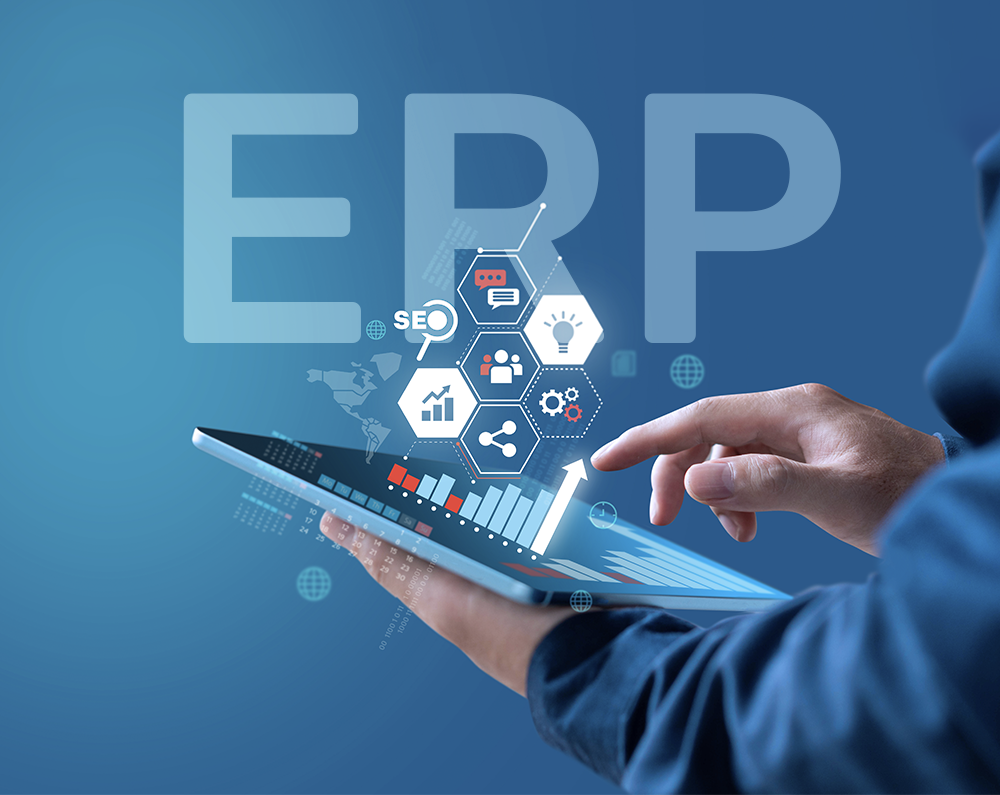Selecting the proper ERP system is a sophisticated, high-risk decision—one that requires clarity, objectivity, and profound industry expertise. That’s where ERP selection consultants come into play. These professionals simplify the ERP evaluation process by evaluating business requirements, narrowing down solutions, and advising decision-makers based on objective criteria. Unlike vendors who sell their solutions, an impartial ERP selection consultant provides a third-party viewpoint, helping organizations cut through the ERP marketplace clutter with confidence. From gap identification to matching platforms against long-term objectives, they make sure that technology decisions align with strategic initiatives and provide quantifiable value across operations, finance, supply chain, and customer interaction.
The initial step towards choosing an ERP for your business is to define your strategic objectives and daily operational issues clearly. Identify key processes across departments—finance, sales, supply chain, and HR—to ensure that the ERP system meets your immediate and long-term business requirements.
Determine the exact functionality your company can’t live without. From advanced reporting to production planning or project accounting, defining your functional essentials will filter out your ERP choices efficiently.
Current businesses operate on integrated systems. Ensure that the ERP system can integrate nicely with your current software—CRM, payroll, eCommerce—to enable end-to-end visibility and end data silos.
Financial feasibility is essential when considering how to choose an ERP system. Think about the cost of implementation, licensing fees, support, and personnel. Choose a system that is affordable within your budget and can be managed using your in-house resources.
Technology continues to accelerate at an unprecedented rate. Choose an ERP system that’s cloud-capable, mobile-enabled, and designed to scale. This means your system adapts to your company and keeps up with digital disruption.
Don’t focus on initial costs only. As part of the criteria for selecting ERP software, analyze long-term ROI through process effectiveness, automation dividends, and data-informed decision-making.
Compare solutions via demos, pilot projects, and vendor credentials. Involve stakeholders to measure each system against their expectations.
Lastly, examine if any modules need customization. Though customization can bring accuracy, it needs to be weighed against system complexity and upgrade paths.
Evaluating industry-specific knowledge is crucial. As part of the criteria for selecting ERP vendors, a partner who understands the specific challenges and requirements of your industry will be more capable of providing tailored solutions. No matter if your industry is retail, manufacturing, healthcare, or finance, look for a partner with proven expertise in enterprise resource planning solutions.
Focus on partners with industry experience for a deeper understanding of your business operations. Check case studies and client testimonials to understand their success in previous implementations.
When narrowing down potential partners, consider their expertise in Microsoft ERP. Look for those with a strong history of successful implementations and support.
Partners may vary in their approaches to implementing Dynamics 365. Some might adopt a more flexible methodology, while others may stick to a rigorous framework. When evaluating ERP implementation partner selection criteria, it’s essential to understand the implementation strategies of potential partners to ensure they align with your company’s needs and timeline.
For Microsoft Dynamics Business Central, understanding how to select an ERP implementation partner includes ensuring they have proven expertise in your preferred deployment—cloud or on-premises—for a smooth, delay-free implementation.
Are you ready to boost your business with Microsoft Dynamics 365? Collaborate with Korcomptenz for expert implementation and support.
Determine your budget limits clearly and communicate them with your prospective Microsoft Dynamics ERP solution provider. While cost is a critical consideration, it’s just as important to assess the total cost of ownership (TCO) throughout the system’s life cycle. A partner that offers an evident breakdown of expenses, including implementation, licensing, customization, and constant support, can help prevent unforeseen costs.
Steer clear of choosing partners solely based on the lowest initial costs, as this can result in hidden expenditures down the line. Instead, concentrate on the complete benefit and return on investment (ROI) that the implementation partner can provide.
Successful ERP implementation hinges on successful project management. Ask about the ERP partner’s methodology for planning, implementing, and monitoring ERP projects. Independent ERP selection consultants often emphasize the importance of a clearly defined and organized strategy to manage budgets, timelines, and potential risks.
Seek a partner that employs industry-specific project management approaches, like Waterfall or Agile, tailored to the specifics of your project. Key indicators of a trustworthy Microsoft Dynamics ERP Solution provider include consistent progress updates, open communication channels, and a clear project timeline.
The right ERP partner provides on-site and remote support for a smooth Go-Live and user adoption. Training should empower your team to manage daily tasks confidently. To avoid post-Go-Live setbacks, ensure strong collaboration between your internal team and the Dynamics ERP partner—don’t rely solely on external support.
The right ERP partner offers both on-site and remote support to ensure a smooth Go-Live and effective user adoption. Training is key—your Dynamics ERP partner should equip your team to handle daily tasks confidently. Lack of support post-Go-Live can derail success, so foster collaboration between your team and the partner instead of relying solely on external help.
When exploring how to choose an ERP partner, Korcomptenz stands out as a trusted and experienced one. With more than 20 years of knowledge and experience, we have a time-tested record of effective Dynamics 365 implementation, maintenance, and support. Our solutions are customized to address your unique business requirements.
By collaborating with us, you gain access to our industry capability, skilled consultants, and dedication to providing value for your ERP investment.
After assessing all factors to consider when choosing an ERP system, pick out potential partners and schedule consultations to discuss your project in detail. This will help clarify their capabilities and approach. Trust your instincts when selecting a partner who will support your company’s goals and desired outcomes.
Choosing the right Microsoft Dynamics ERP Solution provider is a critical first step in your transformation. Thoroughly assess options based on industry knowledge, experience, support services, project management, cultural fit, and more to find a partner that aligns with your objectives and maximizes your Microsoft Dynamics 365 investment.







